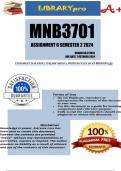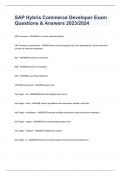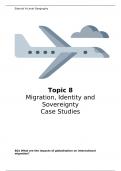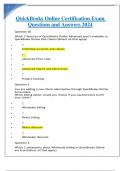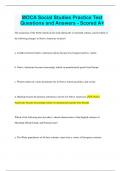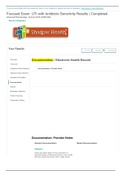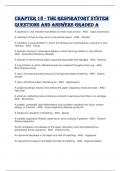Exam (elaborations)
MNB3701 Assignment 6 (WRITTEN) Semester 2 2024 (217042) - DUE 7 October 2024
- Course
- Institution
- Book
MNB3701 Assignment 6 (WRITTEN ASSIGNMENT ANSWERS) Semester 2 2024 (217042) - DUE 7 October 2024 ;100 % TRUSTED workings, Expert Solved, Explanations and Solutions. For assistance call or W.h.a.t.s.a.p.p us on ...(.+.2.5.4.7.7.9.5.4.0.1.3.2)...........
[Show more]
